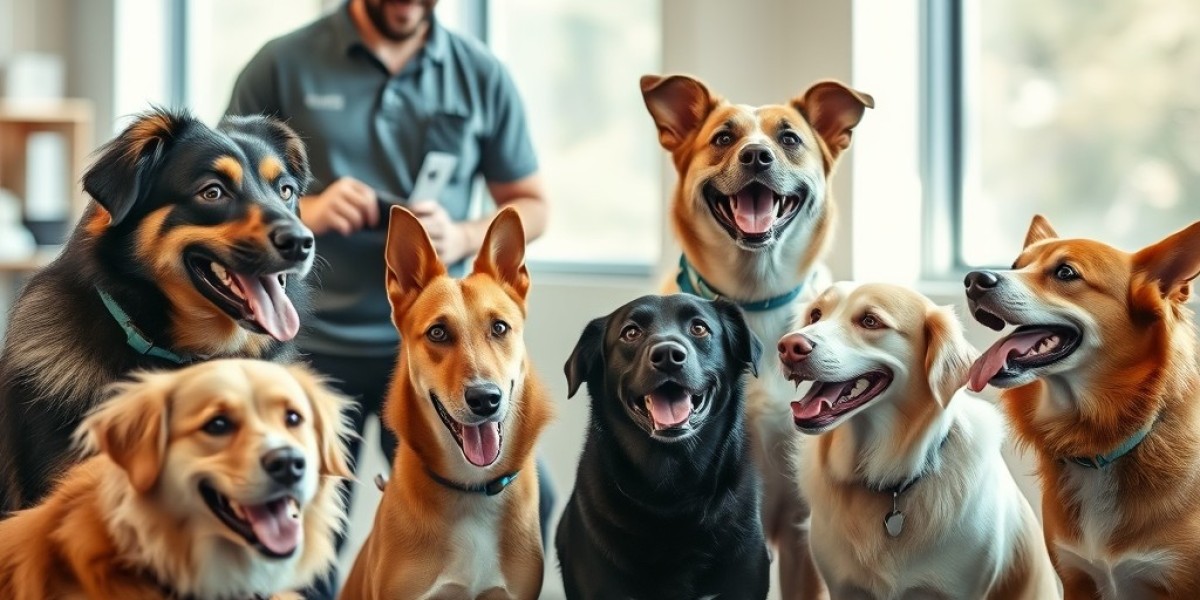Service dogs play a vital role in enhancing the quality of life for individuals with disabilities, offering support, independence, and companionship. In Virginia (VA), specialized dog training services focus on preparing these remarkable animals to perform a wide range of tasks tailored to meet the unique needs of their handlers. From guiding visually impaired individuals to detecting medical emergencies, the process of training service dogs is both rigorous and compassionate.
The Selection Process
The journey of preparing a service dog begins with selecting the right candidates. In VA, training services typically evaluate dogs based on their temperament, intelligence, and physical health. Breeds such as Labrador Retrievers, Golden Retrievers, and Standard Poodles are commonly chosen due to their trainability and temperament. Puppies undergo thorough assessments to ensure they possess the traits necessary to become reliable service animals.
Basic Obedience Training
Before specializing in service tasks, dogs must master basic obedience skills. Training centers in VA emphasize commands such as sit, stay, heel, and come. This foundation is crucial for ensuring that the dog can remain focused and well-behaved in public settings, even amidst distractions. Trainers use positive reinforcement methods to build trust and encourage desired behaviors.
Task-Specific Training
Once basic obedience is established, the dogs move on to task-specific training. Depending on the handler’s disability, service dogs in VA are trained to perform various specialized tasks, including:
Guiding: Assisting individuals with visual impairments by navigating obstacles, stopping at curbs, and locating doors.
Medical Alert: Detecting changes in a handler’s body, such as low blood sugar for diabetics or the onset of a seizure.
Mobility Support: Helping individuals with physical disabilities by retrieving items, opening doors, or providing stability while walking.
Psychiatric Assistance: Offering comfort and performing grounding tasks for individuals with PTSD, anxiety, or other mental health conditions.
Public Access Training
Service dogs must be able to function effectively in a variety of public environments. In Virginia, training services expose dogs to busy streets, restaurants, airports, and other public spaces. This ensures that the dogs remain calm and focused in diverse situations, adhering to the standards outlined by the Americans with Disabilities Act (ADA).
Handler Integration
An essential aspect of service dog training is ensuring a seamless bond between the dog and its future handler. In VA, training services often include the handler in the final stages of the process. This involves:
Teaching the handler how to issue commands.
Educating them on dog care and maintenance.
Practicing real-life scenarios to build confidence and trust.
Ongoing Support and Certification
Many training services in VA provide continued support even after the dog is placed with its handler. This may include refresher courses, troubleshooting behavioral issues, and ensuring the dog’s skills remain sharp. Certification is not legally required for service dogs, but reputable training centers often provide documentation to assure businesses and individuals of the dog’s training.
The Impact of Service Dogs
The work of dog training services in VA has a profound impact on the lives of people with disabilities. Service dogs empower their handlers to lead more independent and fulfilling lives, fostering a sense of security and emotional well-being. For many, these loyal companions are not just helpers but also life-changing partners.
Conclusion
Preparing service dogs for people with disabilities is a complex yet rewarding process that requires dedication, expertise, and compassion. The dog training services in VA excel at meeting the high standards needed to produce reliable service animals. By tailoring training to the specific needs of individuals, these services ensure that service dogs are well-equipped to provide invaluable assistance, making a meaningful difference in their handlers’ lives.










